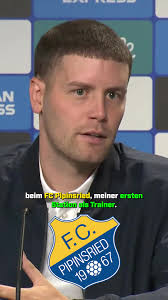Fabian Hürzeler: The New Face of Football Coaching

Introduction
In the ever-evolving world of football, coaching styles and strategies are crucial for the success of teams. One name rising to prominence in this arena is Fabian Hürzeler, a young yet incredibly talented coach who has made significant strides in his career. His coaching philosophy and recent achievements highlight his understanding of the game and his potential to shape the future of football.
Background and Early Career
Fabian Hürzeler was born in 1988 in Germany and had a brief playing career before transitioning into coaching. After representing various youth teams, he took the step into management relatively early, harnessing his knowledge of the game. Hürzeler’s first notable role came with the youth teams at FC Bayern Munich, where he began to cultivate his coaching skills and developed a reputation for nurturing young talent.
Coaching Achievements
In 2021, Hürzeler became the head coach of FC Bayern Munich II, the reserve team of the renowned Bundesliga club. Under his leadership, the team has shown impressive performances in the Regionalliga, the fourth tier of German football. Hürzeler’s approach focuses on creating an attacking and dynamic style of play, utilising young players and integrating them into the team effectively.
He has been particularly praised for his ability to develop young talent, with players progressing to the first team under his guidance. His emphasis on tactical awareness, disciplined gameplay, and adaptability has caught the attention of many in the football community, often drawing comparisons to some of the likes of Pep Guardiola, who are known for their attacking strategies and focus on youth integration.
Recent Developments
As of late 2023, Hürzeler’s stock within the football community continues to rise. Recent interviews reveal that he is keen on taking the lessons learned at Bayern to a higher level, possibly eyeing a role in top-tier leagues across Europe. His success with the reserve side has initiated speculation about what might come next, with many football pundits predicting that he could be among the most sought-after young coaches in the coming years.
Conclusion
Fabian Hürzeler represents a new wave of football coaches who prioritise both tactical proficiency and the development of young talent. His trajectory suggests considerable potential for future success at higher echelons of the sport. As he continues to evolve as a coach, stakeholders in football—from clubs to supporters—would do well to keep an eye on his career. Hürzeler’s strategies and innovations may well influence football for years to come.









